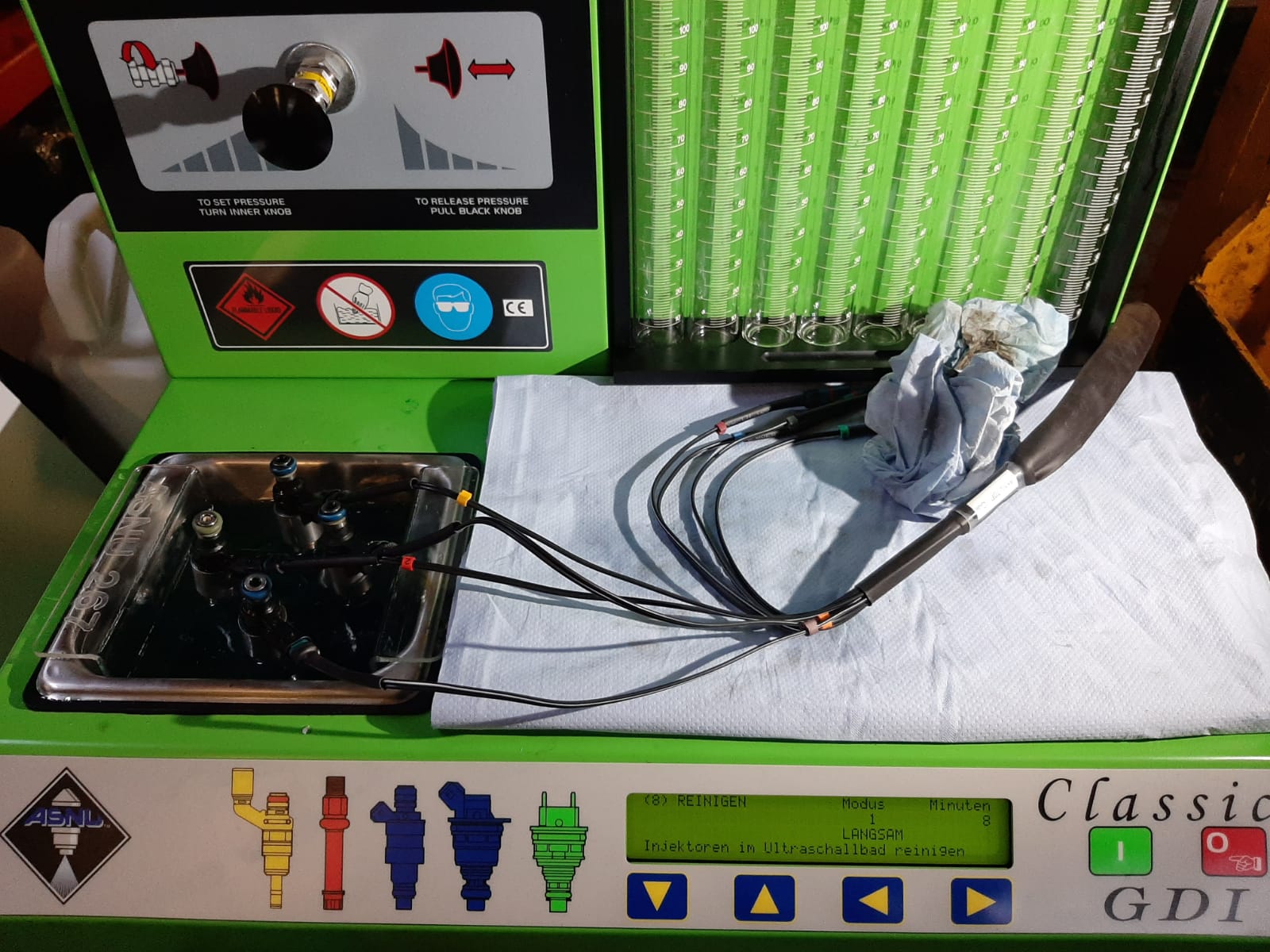When installing TSI engines, we have been offering our customers the option of checking and cleaning the injectors for some time now. But why is that useful or even necessary?
What is the task of the injectors in TSI engines?
The fuel injectors in your vehicle allocate the amount of fuel calculated by the ECU to each cylinder. The fuel is injected with an injection pressure of 0.1 - 4.9 MPa and finely atomized so that it can burn optimally in the combustion chamber.
Symptoms of bad injectors
A defect in the injection nozzles in your TSI engine shows up with different symptoms. Several things can occur at the same time: Your engine stops unintentionally, jerks, is difficult to start or you notice a loss of performance? Have you noticed increased fuel consumption? A fluctuating idling speed of your vehicle or poor exhaust emissions (AU values) are also possible. Defective injection nozzles can result in major engine damage.
Since the injection nozzles are very expensive as new parts, it makes sense to have the injection nozzles checked in advance. This allows you to find the faulty injector and only replace this one. During the test run, all injection nozzles are checked for the same flow rate and are also cleaned ultrasonically. Cleaning can also make replacement completely unnecessary.
Causes of defective injectors
At FSI | TSI | In TFSI engines, the tips of the injection nozzles are located directly in the combustion chamber. Hence the term "direct injection". Due to the direct injection, dirt particles and carbon deposits are deposited on the tip of the injection nozzle after a while. As a result, the spray pattern of the nozzle is no longer optimal over time. In addition, excessive oil consumption also causes extra dirt on the injection nozzle.
Furthermore, due to EU regulations, fuel manufacturers are obliged to use a certain proportion of biologically produced ethanol. In the case of petrol, the proportion of biological ethanol can be identified as follows:
Super E5 = 5% organic content and Super E10 = 10% organic content
Biofuel production has many advantages. But also some disadvantages. Due to the biological content in the fuel, many impurities also get into the petrol. The injectors from FSI | TSI | TFSI engines are hit the hardest because after a while they can no longer filter the impurities. This can be traced back to a clogged filter screen. Once the filter screen becomes completely clogged with small particles, this will result in poor opening of the needle valve. The needle valve ensures that the fuel gets into the combustion chamber. The result of this is that the injection nozzle no longer injects the right amount of fuel correctly, and the engine loses its optimum fuel/air mixture as a result. It is therefore highly advisable to have the injectors checked in order to detect this process early enough. When testing the injection nozzles, the nozzles are exposed to engine-like conditions in a special device. This makes it possible to find out whether they can still deliver the optimum amount of fuel. At the same time, ultrasonic cleaning takes place. This removes any dirt that is already present.
Test procedure

During the test, the injectors go through the following steps:
1. Examination of the current status
2. Testing of the magnetic coils
3. Leak test
4. Check spray pattern and injection quantity
5. Ultrasonic cleaning of nozzles (dirt and particles are removed)
6. Re-check the spray pattern and the injection quantity
7. Decision whether the injectors can continue to be used
Injector check video
When installing a replacement engine, we recommend that our customers also have the injectors checked at the same time. In our experience, without this check, there are often problems with the injectors afterwards. But even without a replacement engine, we recommend checking the injectors if your vehicle shows symptoms. If you have any questions or would like to have your injectors checked, please do not hesitate to contact us.







